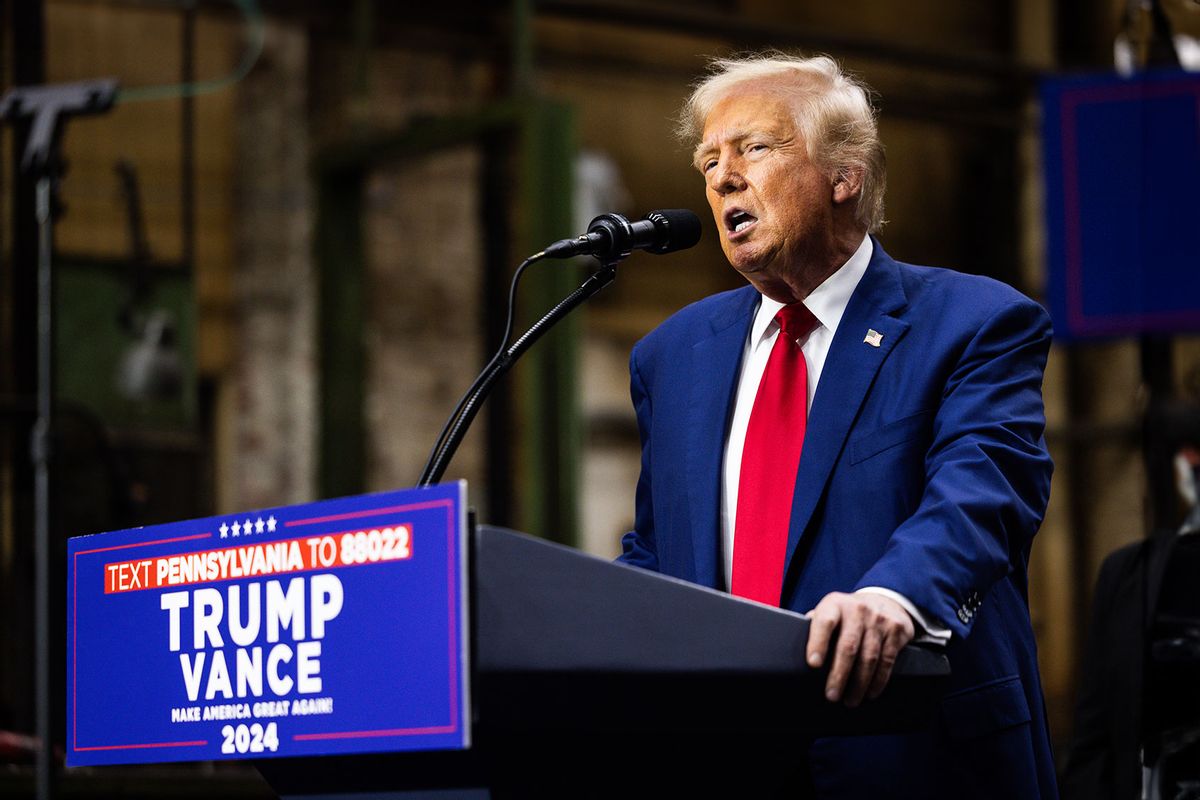Donald Trump told voters during a speech last week that he would bring prices back to pre-COVID levels if elected, drawing heavy skepticism from economists who have studied his proposals.
“Prices will come down,” Trump said last week. “You just watch: They’ll come down, and they’ll come down fast, not only with insurance, with everything.”
The GOP presidential candidate claimed he’d cut the price of gasoline, cooling bills, and electricity across the economy — “Prices will come down and come down dramatically and come down fast,” he promised.
Justin Wolfers, an economist at the University of Michigan, told CNN that while this is probably exactly what the American wants to hear it is not possible. “Unquestionably, this is what people want to hear. And unquestionably, this is unrealistic,” he said.
He explained that Trump isn’t trying to slow the rate of inflation by increasing prices at a gradual, and possibly realistic pace, which is something that the Federal Reserve has already been successfully executing over the last two years. What Trump seems to be describing is, instead, deflation.
“The way to bring about deflation would be to create a massive recession. That would cause businesses to start cutting prices,” Wolfers said. “This is extremely dangerous and feeds on itself."
First of all, if Americans know that their purchases will be cheaper next month, then they will refrain from buying items today. And the consequent widespread price plunges would cause a negative feedback loop — “It’s very hard to get out of a deflationary spiral,” Wolfers said.
Conversely, Kamala Harris’ economic plan also promises to lower high costs, like fighting price gouging on food, lowering the cost of insulin, and combating the housing shortage. However, the vice president has refrained from promising voters a widespread price drops, which would be unrealistic according to economic experts.
We need your help to stay independent
Experts warn overall prices are not going to go back to pre-COVID levels and we shouldn’t want them to, let alone be promised that.
Mark Zandi, chief economist at Moody’s Analytics who served as GOP Sen. John McCain’s advisor in 2008, told CNN that broad price declines would be “unrealistic and undesirable.” He added: “A deflationary environment would be a prescription for a very weak and recessionary economy.”
A better aspiration would be to try and keep inflation, which has slowed considerably this year, stable at about 2%, and increase wages at a solid pace. “If wages continue to outpace inflation, the sting of higher prices becomes less painful with each passing month,” said Zandi.
However, if prices are cut, then businesses would have to start cutting wages which would completely negate the relatively cheaper goods and services. “Bringing down prices sounds really exciting if I get to keep my current wage. But you don’t,” Wolfers told CNN.



Shares